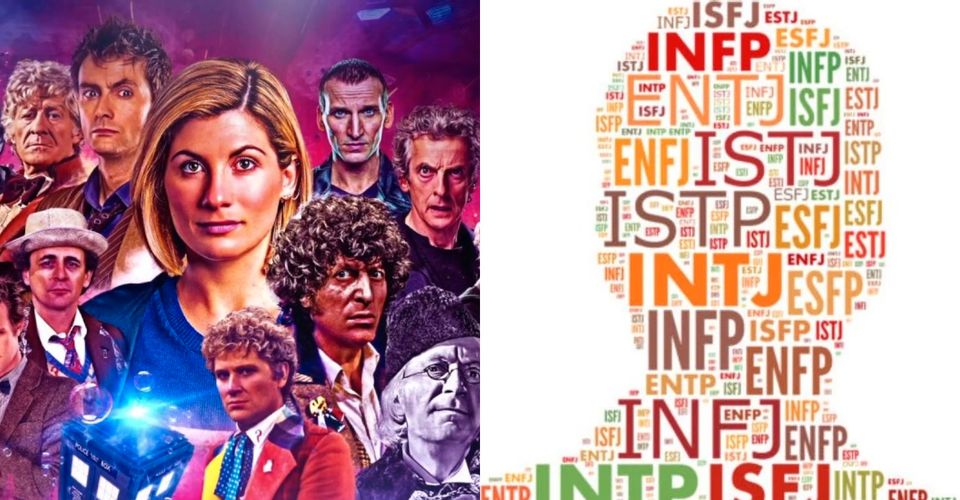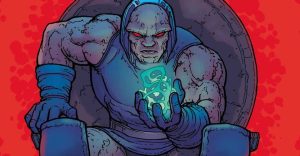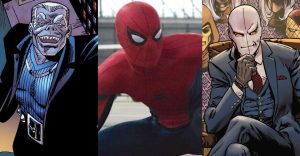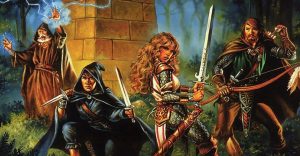Doctor Who: The MBTI Of Every Doctor

In the realm of Science Fiction, there are very few characters as long-lasting as the eponymous Doctor of Doctor Who. This rogue Time Lord from the planet Gallifrey has undertaken countless adventures across time and space to eras and worlds of all types.
The primary reason for the Doctor’s longevity is Regeneration, in which the Doctor recovers from a fatal injury but with a new face and temperament. As a result, the Doctor has been many different characters for the past 60 years. An examination of the Doctor through the Myers-Briggs Type Indicator further looks into the Doctor’s many lives.
First Doctor – INTP

The First Doctor (William Hartnell) may be rather acerbic, grumpy, and insensitive, but he is still the fatherly figure to his companions as he went up against many villains in his first season. In both positive and negative ways, he embodies the INTP personality.
In “The Dalek Invasion of Earth,” Susan was torn between staying with soldier David Campbell or staying on the TARDIS. The Doctor decides for her by departing and letting her live her life, showing how much he developed as the father figure and INTP.
Second Doctor – ENFP

With his Beatles haircut and apparel, the Second Doctor (Patrick Troughton) fits being an ENFP well. He can be caring, warm, and fun with his companions but is also staunchly anti-authority with his high moral code of doing what is right.
“The Tomb of the Cybermen” is an excellent example of how The Doctor was ENFP. The Doctor was unhappy with the leadership of the archaeologists and gave his most heartwarming speech as he comforted Victoria over her father’s death.
Third Doctor – ESTP

One with an ESTP personality is quick to action and adaptable while also insensitive and quickly falling into boredom. The Third Doctor (Jon Pertwee) personified these traits, especially when he was exiled and stuck on Earth.
The Doctor was quite the man of action during this time with his Venusian Aikido and gadgets. “Inferno” was one example though, where he exhibited the insensitivity and boredom traits of ESTP, as he tried and failed to leave UNIT, insulting the Brigadier and indignant of his exile.
Fourth Doctor – ENTP

The Fourth Doctor (Tom Baker) may be known for his eccentricities, but he exhibits other characteristics that make him an ENTP. He held an innovative and creative mind in his many adventures and thumbed his nose at those in charge.
In “Terror of the Zygons,” The Doctor begrudgingly returned to UNIT to assist them with the Zygon threat, with the same dissatisfaction for routine like ENTP. Afterward, The Doctor and Sarah Jane went on less science fiction and more gothic horror adventures.
Fifth Doctor – ISFJ

The Fifth Doctor (Peter Davison) is the most human of all the incarnations. He is a prime example of an ISFJ in that he is gentle, warm-hearted, and is the first Doctor in a while to be some father figure to his companions.
The companion he was closest to as a father figure and ISFJ was Tegan, despite her hotheadedness and indignation. He was distraught when she departed in “Resurrection of the Daleks, which had one of the more questionable Dalek masterplans.
Sixth Doctor – ENTP

The complete opposite of his predecessor, the Sixth Doctor (Colin Baker), represents the extremes of ENTP. On the one hand, he is argumentative, but on the other hand, he is not afraid of verbal beatdowns against those who deserve it.
“The Ultimate Foe,” the final part of the “Trial of a Time Lord” arc, showcased The Doctor’s most significant moment as an ENTP. He was finally fed up with the Time Lords for their kangaroo court and monologued how far his people fell.
Seventh Doctor – ISTJ

Chessmaster is often used to describe the Seventh Doctor (Sylvester McCoy). Behind his unassuming demeanor is a mind in line with an ISTJ with all his planning, observation, organization, and focus.
It was not until Seasons 25 and 26 that the Doctor’s Chessmaster tendencies as an ISTJ came to fruition. “Remembrance of the Daleks and “The Greatest Show in the Galaxy” are good examples of how the Doctor was unflappable and cunning even against Davros and so-called gods.
Eighth Doctor – INFJ

Someone characterized as an INFJ is compassionate, idealistic, and helpful. These traits perfectly describe the Eighth Doctor (Paul McGann) during the events of 1996’s Doctor Who: The Movie.
Sadly, as implied in “The Night of the Doctor,” the events of the Time War slowly whittled away The Doctor’s INFJ tendencies and what little compassion and idealism he had died with the soldier Cass. Thus, he regenerated, and for a time, The Doctor was no more.
War Doctor – ISTP

Though his appearances were brief, the War Doctor (Sir John Hurt) left a lasting impact on the newer Doctor Who series. He is an ISTP because he undoubtedly exhibited many of its traits during the Time War: Independence, objectivity, and aloofness.
Stories of this dark warrior and ISTP were told mainly in expanded material, but “The Day of the Doctor” provided a small glimpse. He had no companions and was single-minded in using The Moment to end the Time War, even at the cost of Gallifrey.
Ninth Doctor – ISFP

Though he was traveling with companions again, the Ninth Doctor (Christopher Eccleston) still carried the weight of what he did during the Time War. He is like an ISFP, where he is more reserved, detached, practical, and focused on the present.
Stories such as “The End of the World” and “Dalek” were when the worst of ISFP traits surfaced for the Doctor, unsympathetic to those who wronged him and the destruction of the Earth. Nevertheless, despite all the things that happened to him, he was fiercely loyal to Rose and did all he could to help her.
Tenth Doctor – ENTP

The Tenth Doctor (David Tennant) is manic, full of life, and very expressive, just like an ENTP. An ENTP is known for their people skills and love of being around others, which perfectly aligns with the massive number of companions in his later years.
The trilogy of “Turn Left,” “The Stolen Earth,” and “Journey’s End” symbolized the Doctor’s ENTP traits as his myriad of companions across Doctor Who, Torchwood, and The Sarah Jane Adventures united to save the Earth. It shows how much The Doctor values life as the protector of our planet.
Eleventh Doctor -ENFJ

As the adult in a child’s body, the Eleventh Doctor (Matt Smith) certainly lives up to the ENFJ personality by being so extraverted and outgoing. Though he had fewer companions this time, he was still empathetic and encouraging to what they wanted to be and do.
“The Eleventh Hour” was the perfect introduction for this Doctor and his ENFJ traits. Once he had gotten over his Regeneration sickness, he was more than happy to accommodate the grown-up Amy Pond and take her on adventures through time and space.
Twelfth Doctor – INTJ

An INTJ expects great things from others, is more reserved, and is more inclined towards abstract ideas. This describes the Twelfth Doctor (Peter Capaldi) well, especially as he fully embraced his life as a Time Lord.
After the return of the Master as Missy is “Dark Water,” The Doctor as an INTJ took on greater responsibilities with his experience and age. “The Pilot” and “The Doctor Falls” are both sides of the coin in how he was proud of Bill for bettering herself and disappointed with Missy for not living up to his expectations.
Thirteenth Doctor – ENFP

The Thirteenth Doctor (Jodie Whittaker) is the first incarnation in a while to be outwardly charismatic, energetic, and fun. As an ENFP, she is very good with people, which is evident when she sees her companions as her new travel family.
“The Woman Who Fell To Earth” showed how the Doctor’s ENFP traits brought Yaz, Ryan, and Graham into the fold, even if she was in the middle of Regeneration sickness. She embraced her eccentric side again with her wardrobe that received mixed reactions among viewers.
Fugitive Doctor – ISTJ

Very little is known of the so-called Fugitive Doctor (Jo Martin), but she made a lasting impact in her few appearances. With her reserved and practical demeanor, she fits being an ISTJ well.
In “Fugitive of the Judoon,” this Fugitive Doctor as an ISTJ returned after she broke the glass. She was as cool as an icebox afterward and bemused by the presence and character of the Thirteenth Doctor.
About The Author

















